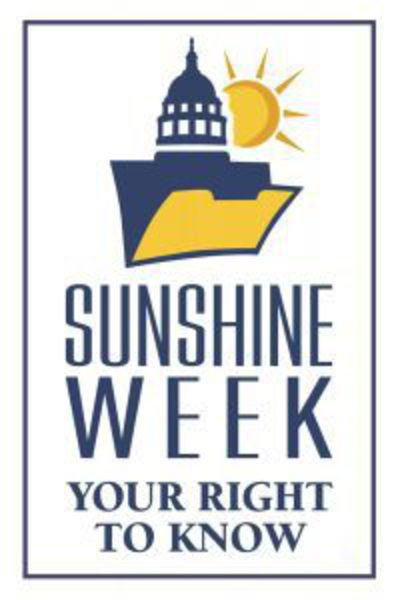GFAF red, blue books define open government
Published 11:00 am Monday, March 11, 2019

- logo
EDITOR’S NOTE: Sunshine Week is an annual nationwide celebration of access to public information and what it means for the public. The week is sponsored by the American Society of News Editors and the Reporters Committee. Sunshine Week is March 10-16. This story is one in a series of related articles being published this week.
VALDOSTA — “Georgia’s Sunshine Laws: A Citizen’s Guide to Open Government,” The Georgia’s First Amendment Foundations “red book,” contains the state’s open government laws verbatim, reprinted from the Official Code of Georgia Annotated, regarding Georgia’s Open Records Act and Georgia’s Open Meetings Act.
The GFAF red book also provides explanations of these laws and how they apply to the public. For example, the book provides information on how the government should provide access and penalties for government’s non-compliance to open meetings laws and the Open Records Act.
Georgia’s open government laws underwent rewriting with changes going into effect in April 2012; these changes were in part due to the work of previous Georgia Attorney General Sam Olen’s office.
The book provides information so the public can know the law and how to stay informed.
The Red Book also provides a list of resources on open government, which includes websites and phone numbers.
The Red Book is produced by the Georgia First Amendment Foundation and the Georgia Press Association. It is available from representatives of the Georgia First Amendment Foundation, at GFAF open government training events or as a PDF on the foundation’s website at gfaf.org.
The Georgia First Amendment Foundation’s blue book, titled “Georgia Law Enforcement and the Open Records Act: A Law Enforcement Officer’s Guide to Open Records in Georgia,” provides information on open records compliance for the lawful protection of citizens’ rights to public information.
According to the book’s preface by Olens, the Blue Book is intended to inform the members of the Georgia law-enforcement community of open records compliance so as to ensure the public is able to observe the workings of its government.
The book includes an overview of Georgia Open Records Act and its process, pending investigations and prosecutions, types of records such as personnel records and juvenile records, record retention and news media access.
A sample open records cost worksheet and information exempt from public disclosure are provided in the appendices of the guide.
The Blue Book is available from representatives of the Georgia First Amendment Foundation, at GFAF open government training events or as a PDF on the foundation website at gfaf.org/the-blue-book/.
Amanda M. Usher is a reporter at The Valdosta Daily Times. She can be contacted at 229-244-3400 ext.1274.





